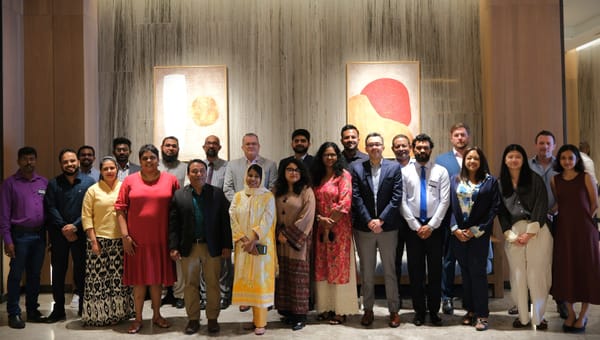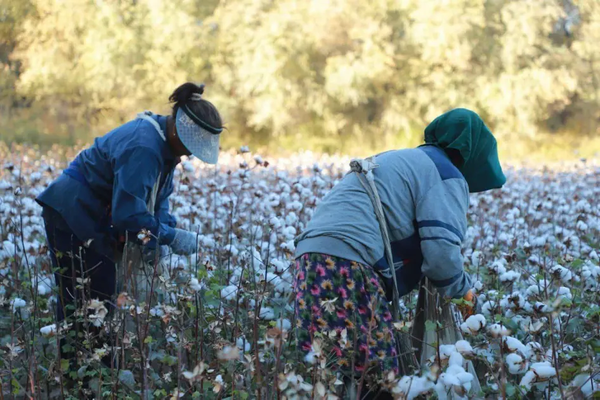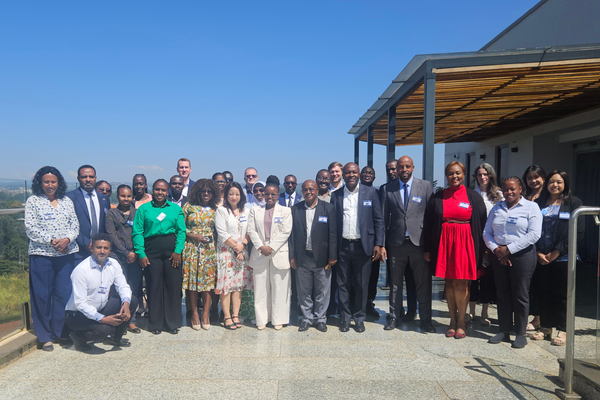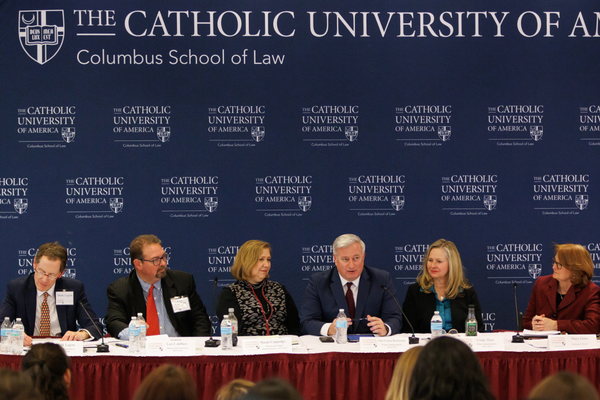The loss of ILAB grants could undermine decades of progress in labour rights
The U.S. terminates dozens of international programs combating forced labour and rights abuses, the Council of Europe calls for renewed commitment on human trafficking, and Thailand drafts legislation to strengthen corporate responsibility.
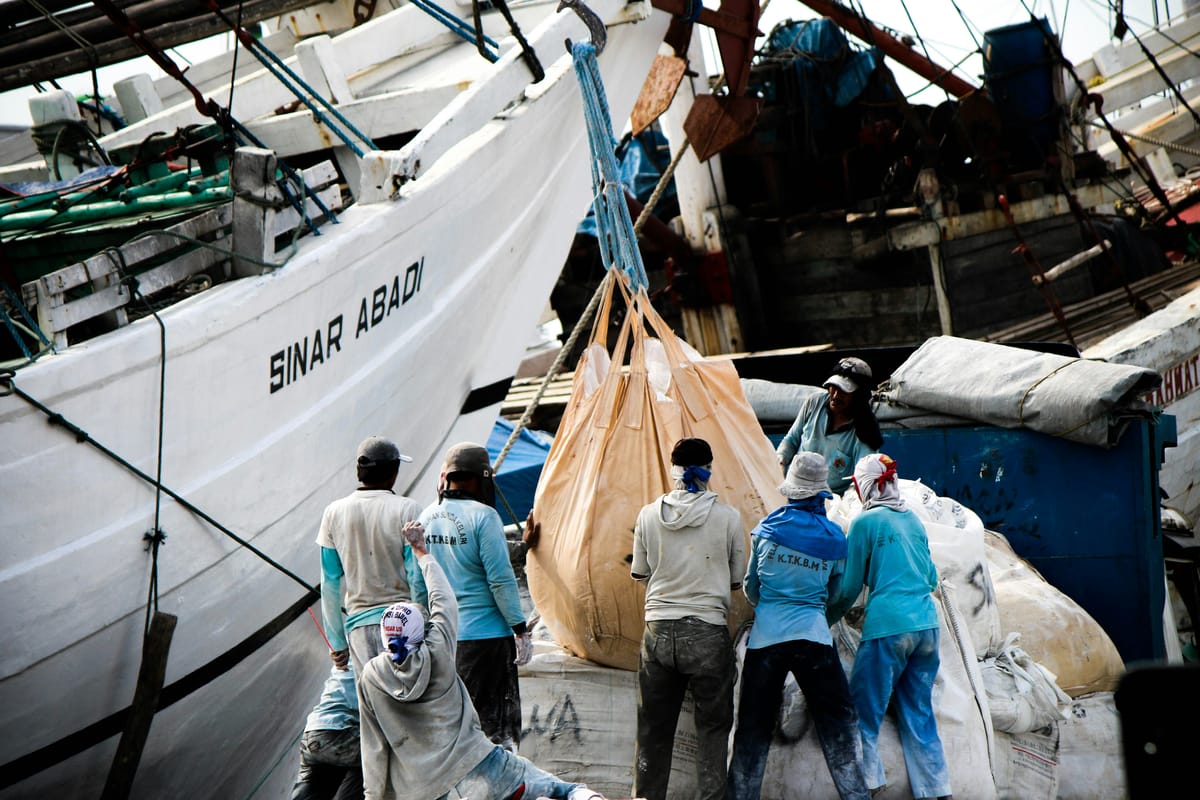
The U.S. Department of Labor’s Bureau of International Labor Affairs (ILAB) has abruptly ended grants totaling more than US$500 million aimed at combating child labour, forced labour and human trafficking across 40 countries, with a Trump-appointed official citing their “lack of alignment with agency priorities and national interest”.
The 69 terminated programs covered a wide range of interventions, from preventing child labour in agricultural sectors to addressing human rights abuses in fisheries and electronics supply chains. More than 40 per cent of the active grants were earmarked for the International Labour Organization (ILO), which had been allocated US$215 million to tackle child labour in Myanmar and West Africa, develop a new industrial relations framework in Vietnam, and combat human trafficking in Mexico.
The decision is part of a broader administration strategy to reduce federal international assistance, following huge cuts to USAID programs. On Friday, it detailed plans to put USAID fully under the State Department and reduce its staff to some 15 legally required positions – elimination in all but name which will profoundly affect global development work and risk hard-won progress in the anti-trafficking and labour rights sectors, among others.
ILAB was founded in 1947 as part of post-World War II reconstruction efforts, with a mission to strengthen global labour standards, enforce labour commitments among trading partners, and combat international child labour, forced labour, and human trafficking. Further, its activities are deemed critical to ensuring that American labour is not undercut by unfair competition and that soft-power is not ceded to countries such as China or Russia.
A number of the ILO programs were tied with U.S. trade agreements. For instance, Better Work, a factory monitoring program that promotes decent work and competitiveness in global garment supply chains, is required by law in Haiti under the HOPE II legislation; the ILO’s efforts to improve union democracy, transparency and accountability in Mexico aligned with provisions on collective bargaining in the United States-Mexico-Canada Agreement (USMCA); and “All Hands in Kenya,” a four-year project to provide technical assistance to improve compliance with international standards, addressed labour concerns identified under the African Growth and Opportunity Act as part of negotiations of the U.S.-Kenya Strategic Trade and Investment Partnership.
The Solidarity Center, a workers’ rights non-profit which has lost all its ILAB grants, highlights the mutually beneficial nature of such contracts, noting the way in which they help prevent companies from outsourcing jobs solely to take advantage of lower labour costs in regions where workers’ rights may be limited. Moreover, it adds, American consumers likely do not wish to buy garments made by children or under sweatshop conditions – a risk made far more likely by the termination of ILAB’s grants.
The American Apparel & Footwear Association points out that the loss of ILAB assistance – and potentially ILAB itself – would quickly turn a level playing field into an uphill battle, not only for its members, but also for their 3.5 million American workers. The support of ILAB’s capacity-building initiatives in sourcing countries allows U.S. brands and retailers to conduct due diligence and ensure social compliance, while the bureau also plays an essential role in negotiating for the federal government; experts note that even the biggest and wealthiest companies do not possess the authority and influence of the U.S. Government to enforce trade agreement commitments or reduce the risk of forced labour-tainted products.
Meanwhile, GoodWeave International says the decision “strikes at the heart of global efforts to protect vulnerable children and workers”, referencing its efforts in Afghanistan, previously supported by ILAB, to drive child labour prevention in the carpet industry by improving school access for at-risk girls and strengthening oversight in supply chains. Its child labour-free certification program was referred to by ILAB as an “example in action”.
Here’s a round-up of other noteworthy news and initiatives:
Conny Rijken, the new president of the Council of Europe’s Group of Experts on Action against Trafficking in Human Beings (GRETA), has called for renewed commitment from all actors in the face of persistent human trafficking and new forms of exploitation. GRETA’s fourth evaluation round of the Convention on Action against Trafficking in Human Beings focuses on vulnerabilities to human trafficking and measures taken by states to address them, detect and support vulnerable victims, and punish offenders.
Thailand is drafting new legislation that will require businesses to conduct human rights and environmental due diligence in their supply chains, building on its existing commitments and aligning with international frameworks. The law will apply to businesses operating in Thailand, requiring them to identify, prevent, and address human rights and environmental risks in their operations and supply chains.
This article looks at the ordeal faced by trafficked scam center workers in the Golden Triangle Special Economic Zone of northwestern Laos, a sealed-off gambling town that centres on the Kings Romans Casino, where drug smuggling and wildlife trafficking operations are also said to take place. While thousands of people are trafficked into the zone and forced to carry out online fraud, local authorities insist it is too difficult to get inside, while corruption among officials is rampant, the authors say.
The European Union wants to increase deportations and is opening the way for “return hubs” to be set up in third countries for rejected asylum-seekers, according to a newly unveiled migration proposal that aims to allow national authorities from one country to enforce the deportation orders issued by another. Migrant rights groups have criticized the proposed reform saying it undermines the right to asylum and would lead to more detentions.
The Coalition on Labor Justice for Migrants in the Gulf has delivered a speech to the UN on the outcome of Qatar’s Universal Periodic Review, noting that, while Qatar has taken steps over the last five years to reform labour laws, migrant workers still face widespread exploitation, including forced labour, wage theft, and retaliation for speaking up. It urged the country to commit to implementing UN recommendations, including the right to form and join trade unions without discrimination, and to effectively prosecute violations against domestic workers while protecting their right to remain.
Countries including China, the UK and Indonesia have stepped up to provide emergency relief and humanitarian aid for Myanmar after a powerful earthquake struck the center of the country on Friday, while the U.S. has been slow to respond, partly because its aid distribution systems have been dismantled, observers say. Meanwhile, rights groups have warned that assistance should be funneled carefully to the country through community-based groups and not the military junta, which has a history of weaponizing aid.
Secret filming by the BBC has exposed the tactics of rogue recruitment agents who scam foreign nationals applying to work in the UK care sector, including illegally selling jobs in UK care companies, devising fake payroll schemes to conceal that some jobs do not exist, and shifting from care to other sectors, like construction, that also face staff shortages. One charity described the scale of exploitation as a “national crisis”.
A new report from Anti-Slavery International provides an assessment of current and emerging responses to the intersecting challenges of climate change, mobility and modern slavery. Through case studies, it shares the insights of civil society actors and researchers working with affected communities from South Asia, Southeast Asia, sub-Saharan Africa, the Pacific Islands, and Latin America.

